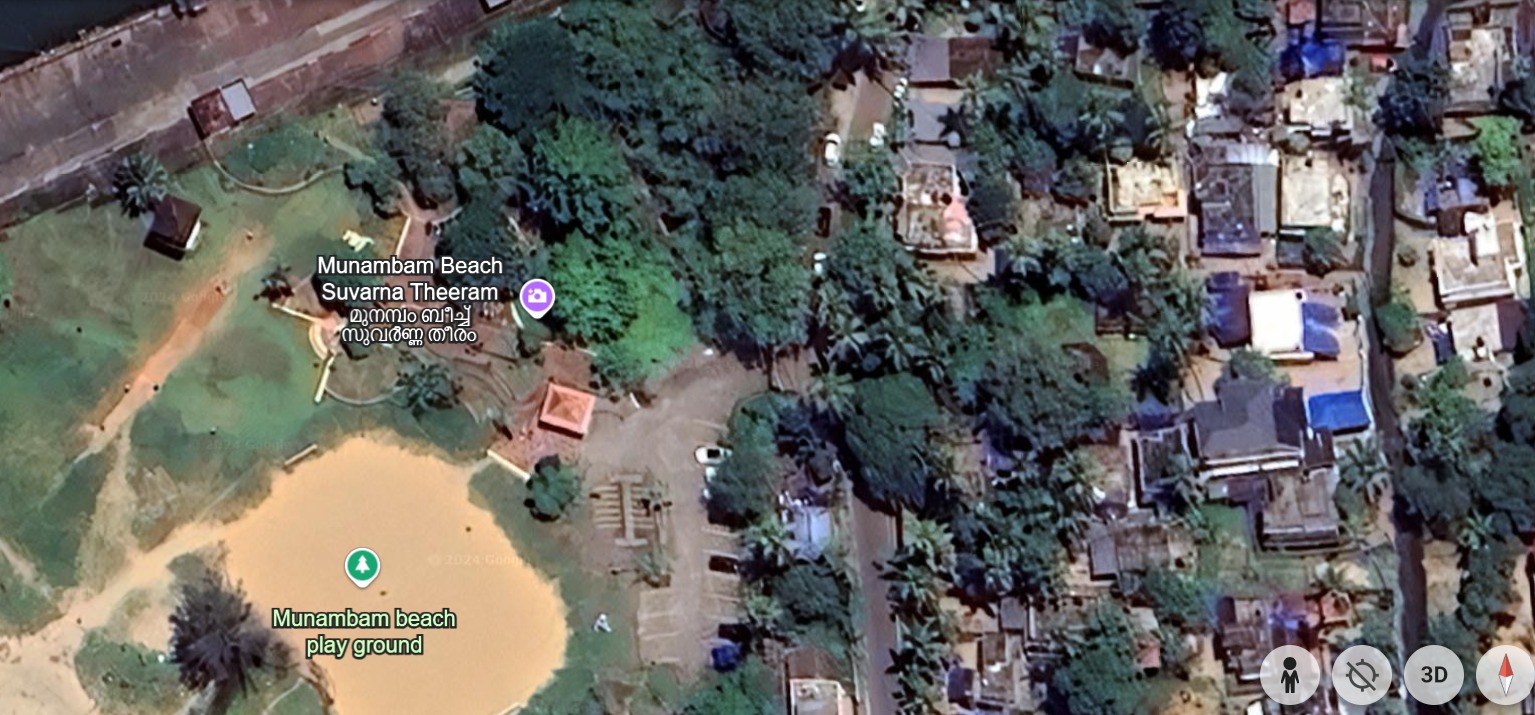This sudden U-turn by the family has drawn a lot of attention, especially since their earlier claim led to the Waqf Board stepping in. The tribunal will continue hearing the case in the coming weeks.
Published Apr 09, 2025 | 12:02 PM ⚊ Updated Apr 09, 2025 | 12:02 PM

A portion of Munambam land under dispute
Synopsis: The family of the woman who allegedly donated the land in Munambam as Waqf property is now saying it was never Waqf land. Earlier, the family aligned with the Muslim League’s stance, which held that the Munambam property was Waqf land.
In a surprising twist in the Munambam Waqf land dispute in Kerala, the family of the woman who allegedly donated the land as Waqf property is now saying it was never Waqf land.
During a recent hearing at the Kerala Waqf Tribunal, the lawyer representing the children of late Subaida, daughter of Siddique Seth, who donated the land, told the tribunal that the land does not belong to the Waqf.
This is a major shift, as Subaida and her brothers, Naseer Seth and Irshad Seth, had claimed in 2019 that the land was Waqf property and asked the Kerala State Waqf Board to take it back.
Joseph Benny, Munambam protest leader, told South First that while it’s beneficial to claim the property is not Waqf land, the family’s true intentions remain unclear; whether they are aiming to reclaim ownership or have other motives.
Earlier, the family aligned with the Muslim League’s stance, which held that the Munambam property was Waqf land.
However, after intense discussions with representatives of the Varappuzha Diocese and church authorities, the league shifted its position. Now, the family backs the Congress and the Muslim League’s revised stand that the property is not Waqf.
“We are still waiting for a clearer picture to emerge,” he added. “But for now, we are at least glad that there is finally an acknowledgment that the property is not Waqf.” he told.
Based on the family’s request, the Waqf Board took control of the land in 2019 and declared it as Waqf land. However, now, Farook College, which is fighting the Board’s move, is being supported by Subaida’s children.
After Subaida’s death, her children took over the legal case and are now backing Farook college’s argument that the land is not Waqf property, completely reversing their earlier position.
This sudden U-turn by the family has drawn a lot of attention, especially since their earlier claim led to the Waqf Board stepping in. The tribunal will continue hearing the case in the coming weeks. More details and political reactions are awaited.
The Munambam land dispute has sparked significant unrest, with 610 families contesting the Kerala Waqf Board’s claim over the land.
The board alleges that the land was donated in 1950 to Kozhikode’s Farook College, a claim that could potentially strip the families of their homes and rights to the property they’ve lived on for generations.
The dispute centres on a 404.76-acre plot in the coastal village of Munambam, a suburb of Kochi, which is now at the heart of a legal and political battle.
The Waqf Board’s claim, if upheld, would designate the land as Waqf property, a category under Islamic law that prevents the sale or transfer of land but allows its income to be used for charitable purposes.
However, the announcement of this claim in 2019 led to widespread protests from the residents of Munambam Kadappuram and Beach wards, who have long inhabited the area.
The origins of the dispute date back to 1950, when local philanthropist and affluent Muslim trader Siddique Seth made a charitable donation intended for Farook College.
The Waqf Board asserts that this donation renders the land Waqf property, a claim that remained dormant for decades. During this time, many non-Muslim families bought, built homes, and established businesses on the land.
These families have held property deeds and paid land taxes consistently until 2019, when the Waqf Board publicly asserted its ownership.
Since then, residents have found themselves caught in a legal and administrative limbo. Tax collection for the affected properties was suspended in 2022 amid the ongoing legal disputes, further complicating the situation for families who are now struggling to maintain their livelihoods.
(Edited by Muhammed Fazil with inputs from Sreelakshmi Soman.)
